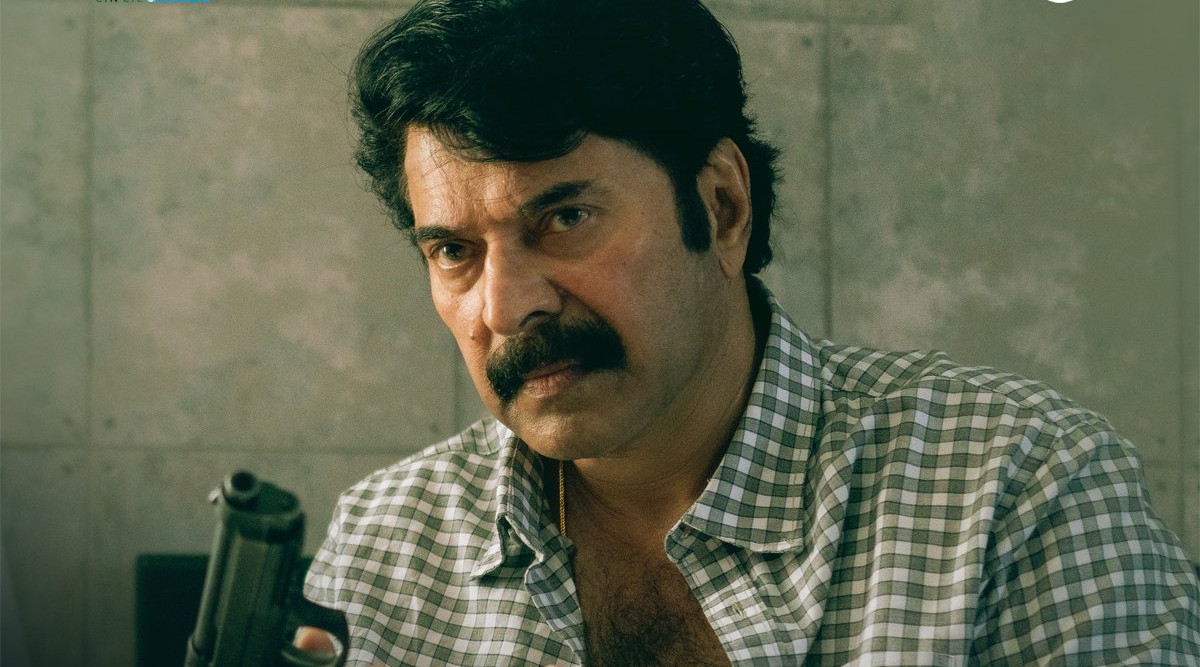 Puzhu is streaming on SonyLIV.
Puzhu is streaming on SonyLIV.Puzhu (Worm) takes various meanings in debutant director Ratheena PT’s movie, which is written by Harshad, Sharfu and Suhas. A single-actor mythological play within the movie foreshadows the climax. According to the play, a king goes into isolation to protect himself from a curse. And he covers all the security loopholes that could pose a threat to his life. But, he never expected the danger to his life would come in the form of what seemed like a harmless puzhu.
In the context of this film, puzhu could be interpreted as not just the bearer of death. The word puzhu has a dehumanizing effect. Puzhu is something that you can stomp on and walk away without worrying too much about the consequences. It’s after all a puzhu, right? How dangerous can it be? In this film, puzhu is an allegory for bigotry. Every time Kuttan (a formidable Mammootty) is around his brother-in-law Kuttappan, he exhibits disgust and hate as if the latter is not a fellow human but a worm that deserves nothing but hostility.
At the heart of Puzhu are the evils that stem from casteist practices. Kuttan is a Brahmin, while Kuttappan is a SC/ST man. Bharati (an in-form Parvathy), Kuttan’s younger sister, falls in love with Kuttappan and elopes with him against her family’s wish. Her mother gets bedridden in shock and her brother is so ashamed that he loses his strength to look into other people’s eyes.
Puzhu distinguishes itself from other movies that examine the dehumanising effects of the caste system by being completely non-judgemental. The film is kind to even the unkindest. It never once tries to coach us as to whose side we should take. The movie makes a bold choice of leaving it to the morals and values of the individuals who see it.
Best of Express Premium
There are moments when the film makes you root for Kuttan. You are by now fully aware of Kuttan’s deep-rooted hatred for people who belong to different communities and castes. You know his parenting skills are questionable, unhealthy and bordering on child abuse. He handles his son like he would handle a criminal. But, there are certain moments, you feel for Kuttan. You empathise with the man when he tries to connect with his son Kichu, who begins to openly rebel against him. You feel sad when Kichu, for all the right reasons, refuses to reciprocate Kuttan’s attempts to connect with him. There are also times when Kuttan draws some laughs. For example, he keeps visiting a suspect every time he escapes an attempt on his life. Of course, the comedy is short-lived as it gets tragic real fast.
Mammootty is a revelation. If not for the camera’s power to capture the minute details of faces, the hatred that Mammootty showcases with the little twitch of his eyes and lips would have escaped our naked eyes.
Puzhu is an ultimate test of one’s moral compass. We follow the story from the perspective of Kuttan, who is an unapologetic bigot. We hear very little from Bharati and Kuttappan. Mammootty delivers a moving performance as a man with a questionable and even condemnable worldview. He makes us see that Kuttan is stuck in his own head and it’s not a pleasant place to be. It’s hell. The axiom that dictates his life is ‘What would people say?’ It is the question that keeps him up at night and eats him up from inside. You understand Kuttan’s story. You may not agree with him but you understand where he’s coming from.
If you have a better perspective on life than Kuttan, then you would understand that caste segregation is a made-up social construct and it is not a fact of life. And that one can happily live ever after without worrying about what others think because the perceptions and the opinions of others are not our problems. Kuttan just needs to take a break from his own head and relax. We so wish that Kuttan kills the puzhu in his head. It’s so suffocating.
If you didn’t know any better, there is a high chance that you may end up condoning Kuttan’s actions and the way he treats people who he considers inferior. And that is a novel risk that the filmmakers are willing to take. It’s entirely up to you what message you want to take away from the movie.
- The Indian Express website has been rated GREEN for its credibility and trustworthiness by Newsguard, a global service that rates news sources for their journalistic standards.

